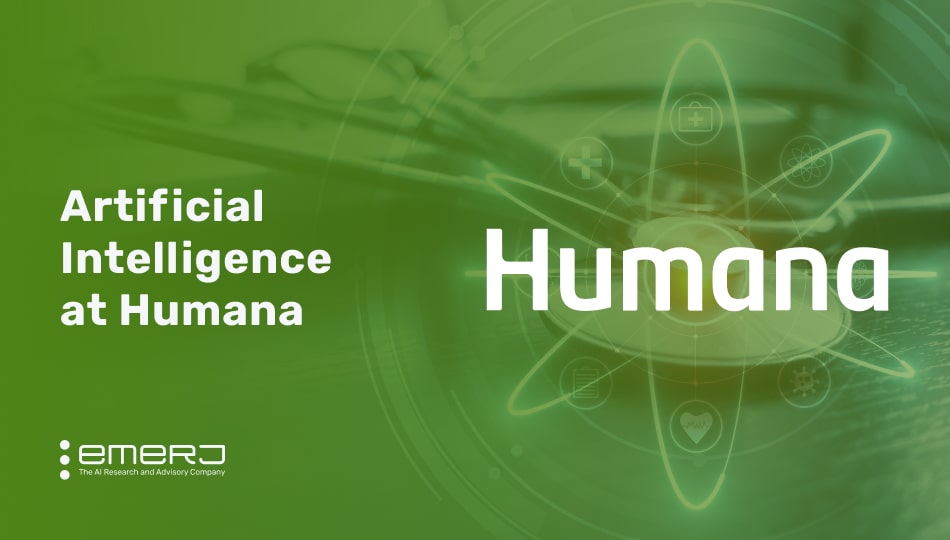
Humana Inc. is the fourth most significant health insurance provider in the U.S. Founded in 1961, Humana is based in Louisville, Kentucky. Humana was ranked 42 on the Fortune 500 list in 2023. Humana employs over 67,000 individuals and is one of the most prominent publicly traded managed care companies in the U.S.
Since its inception, Humana’s focus has evolved. Initially, they operated nursing homes and were known as Extendicare, Inc. By 1968, they had become the largest nursing home company in the U.S. By 1972, they shifted focus to purchasing and changed the company’s name to Humana in 1974.
In 2023, Humana reported revenue of $106.37 billion, representing a 14.54% growth from the previous year. Humana has over 17 million members across all of its healthcare plans.
Humana has implemented AI through a partnership with naviHealth, a provider of AI tools, and also through partnering with Salesforce for both their AI capabilities and their ability to integrate Humana’s legacy systems. Humana has authored a Statement of AI Principles, which formally defines and guides their use of AI and advanced analytics.
This article will examine two use cases demonstrating how AI supports Humana’s core business goals:
- Determining a patient’s type and duration of care: Using a predictive modeling algorithm to make coverage decisions.
- Ensuring patient outreach: Combining predictive analytics and algorithms with in-house legacy platforms to identify patients most at risk for COVID-19 and identify members for immediate outreach to increase access to care.
Determining a Patient’s Type and Duration of Care
Receiving the correct type of post-acute care at critical points helps to reduce unnecessary hospital readmission. Lack of proper post-acute care can lead to unnecessary hospital readmissions and premature admissions to long-term care facilities. The Agency for Healthcare Research and Quality evaluated hospital readmissions in 2018 and identified $15,200 as the average hospital readmission cost.
According to case study documentation from naviHealth, Humana partnered with the company to better identify and predict what type of care patients need following a hospital stay and increase patient satisfaction.
naviHealth’s use case describes their platform, called nH Predict, as a proprietary care-support tool that informs healthcare providers and a patient’s family or caregivers what type of assistance and care a patient might need both in the facility and after discharge. The tool takes into account a patient’s:
- Cognition level
- Mobility
- Ability to perform daily activities
Screenshot showing nH Predict Outcome Report from Partnering for Success in the Patient-Driven Repayment Model (PDPM). [Source: naviHealth]
While no published results show quantifiable metrics for the impact nH Predict has had for Humana, published case studies from other healthcare companies who also use naviHealth’s nH Predict solution offer us a glimpse of the possibilities.
According to case study documentation, Priority Health realized the following benefits from naviHealth’s platform in a similar process:
- A 3% reduction in readmissions from members who were admitted to skilled nursing facilities
- A 36% decrease in length of stay at skilled nursing facilities (SNF), enabling patients to return to the comfort of their own homes faster without a decline in quality
- A 41% decrease in SNF days per 1000
According to naviHealth, their prediction tool is one of many inputs and is not used to deny care or to make coverage determinations. However, recent news headlines would make it seem otherwise.
Humana has recently been subject to a lawsuit filed in December 2023. The putative class action lawsuit alleges that Humana used their AI model to deny elderly patients care under Medicare Advantage Plans by overriding treating physicians’ determinations for care that they deemed medically necessary. Humana isn’t the only healthcare company to come under scrutiny for using AI in claims processing. Cigna faced a lawsuit in 2023 for using computer algorithms to reject claims.
Beginning in January, new federal regulations were implemented for Medicare Advantage plans, which will restrict the use of algorithms for making coverage decisions. The combination of current lawsuits and recent regulatory changes will likely impact Humana’s workflows and use of AI.
Ensuring Patient Outreach
The emergence of COVID-19 and the resulting global pandemic necessitated an immediate shift in focus for Humana to take their use of predictive analytics and AI from the concept stage to daily use in order to target their members most affected by COVID-19. Essentially, the pandemic is a catalyst for AI change.
In a 2022 fireside chat with Daniel Lackland of Ai4, Humana’s Associate Vice President of Healthcare Services Technology Solutions, Sam Garas, explains how Humana had to adapt their algorithms and implement them rapidly. A 15-minute video describes how Humana had to adjust its approach rapidly during the global pandemic.
Garas credits Humana’s use of the Salesforce platform as a critical component in helping them achieve the necessary infrastructure changes to scale up when the pandemic hit in 2020. Hospital utilization dropped during the pandemic. As a result, Humana shifted its efforts from utilization management to care management.
Salesforce’s Health Cloud, an AI Customer Relationship Management (CRM) solution, powers Humana’s Enterprise Clinical Operating Model (ECOM). Companies using Health Cloud are able to:
- Collaborate efficiently
- Deliver personalized care
- Automate health operations
Utilization Management screen in Health Cloud platform for a fictitious patient [Source: Video on Salesforce website]
According to their customer success story published on Salesforce’s website, Humana has achieved the following benefits:
- Deliver care four times faster by connecting member data
- Save $6 million in information security costs
- Improve outcomes by coordinating specialist care around a comprehensive overview of each member
More generally, Salesforce customers have seen:
- 33% care plan adherence
- A 29% reduction in operational costs
- A 35% increase in patient/member acquisition









